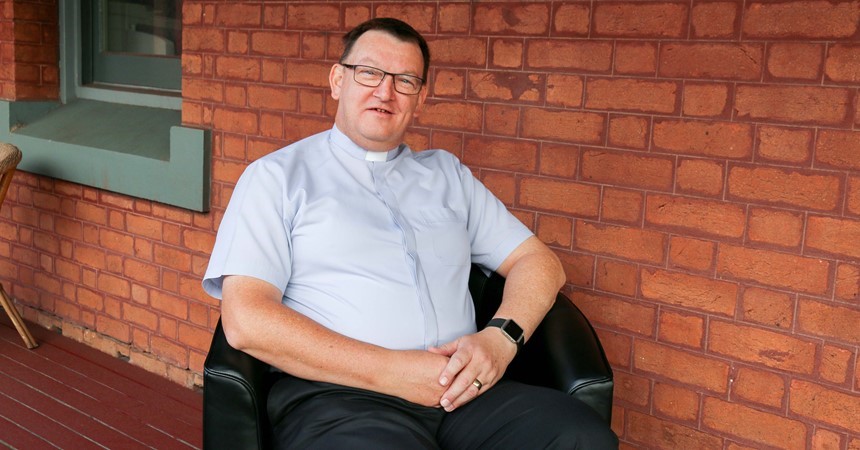Then something goes wrong. Either of them makes a mistake, either is offered a job far away from the other, an ‘old flame’ suddenly makes a reappearance. It can be anything, but whatever ‘it’ is, the two persons are thrown into a spin, are no longer happy, and start to drift apart.
And then, at some point and for some other reason, Person A and Person B realise that they do, in fact, love each other. So there’s a great reconciliation, and everything is ‘perfect’ again.
Such a scenario, or some variation thereof, could be the plotline of a great Hollywood rom-com blockbuster. Yet often, the understanding of love found in such Hollywood
productions is what I might call “Love lite”.
I like to remind couples whose wedding I am celebrating, that the Hollywood version of love is radically different to the Christian understanding of love. I also remind them that what they are about to confirm to each other, their family and friends, and the whole community, that they are prepared to embrace the dangerous act of loving each other.
Love might not often be considered dangerous, yet the Christian sense of love – and more importantly, the act of loving – requires a preparedness to seek the good of the other, the one we profess to love, simply because they are who they are.
Loving someone means that we do not use them for our own good, for our own benefit, but rather seek to enable them to have a full life and become all that they might become.
Loving someone from a Christian perspective means that we must recognise the other has been created in the image and likeness of God, just as we have been. And such recognition means there may be a requirement for us not to prioritise our own wants and needs, if doing so might impinge on the other’s ability to flourish as a human being.
In other words, the act of loving requires an openness to the possibility of sacrifice.
Hence the danger.
In recent months, Pope Francis has reminded us of the nature of Christian love in his encouragement for all people to receive vaccinations during the ongoing COVID pandemic. Pope Francis reminds us that getting vaccinated is not about me but rather about those around me – my family, friends, community, and those I supposedly love.
The same could be said about the need to wear a mask, stay at home where possible, check in to places when we visit them, and many other elements of the restrictions we currently face.
Yes, they are an imposition. Yes, they are a burden. Yes, they are less than ideal. Yet we live with them because ultimately, it’s only by doing so that we can show our love
for others as we are called to do. We live with them, too, because by doing so together, we will eventually emerge from the circumstances in which we find ourselves.
Embracing the call of Christian love demands that we are actively engaged with those around us all the time, not just during the COVID pandemic. It is a fundamental approach to how we live our lives, the way we call to live and act whenever we interact with others.
In the October edition of Aurora, there are some wonderfully inspiring stories about love, about how individuals and communities have loved, and what love means to people in our diocese.
I can only hope that reading these stories and seeing how people have given expression to the act of loving inspires us all to more readily embrace the call to the dangerous act of loving others.
You can read the October edition of Aurora here: https://issuu.com/diomn/docs/aurora_october_2021_web























































































